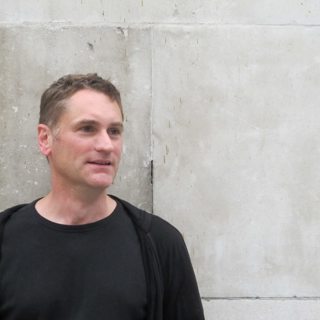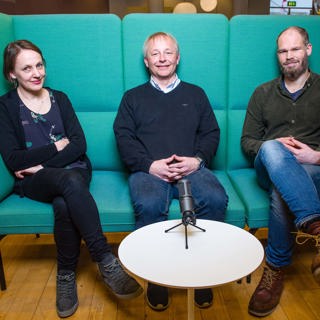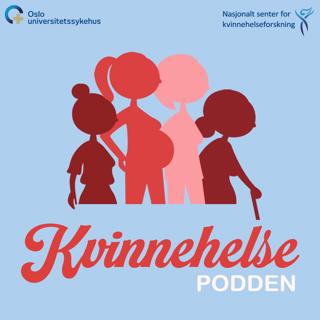
Ethiopian genome, Coral nutrients, The hunt for gravitational waves, Seven Brief Lessons on Physics
As evidence grows about the vulnerability of our ocean corals to climate change, what's often overlooked are the more subtle changes in the ocean waters that contribute to coral resilience. Adam visits Southampton's Oceanography Centre where new research is showing how an imbalance of nutrients in reef waters is increasing the vulnerability of reef corals to high water temperatures which could help direct future coastal management.The long awaited hunt for gravitational waves gets underway as the Laser Interferometer Gravitational Wave Observatory (LIGO) in the United States begins its first observational run. The waves, generated by some of the most dramatic events in space such as the explosion of stars and the merging of two black holes, were first postulated by Einstein in 1916. So far they've never been detected but if LIGO is successful it'll not only provide proof of Einstein's Theory of Relativity but also provide the first direct evidence of the existence of black holes.And Adam meets theoretical physicist Carlo Rovelli whose new book Seven Brief Lessons on Physics examines in seven short essays how 20th century physics is shaping our world view. In Italy, it's outsold 50 Shades of Grey and the Pope's Encyclical and has now been translated into English. What's been the key to its success?
8 Okt 201527min

Write on Kew festival at Kew Gardens, Preserving global biodiversity
A special edition recorded in front of an audience at Write on Kew, the Royal Botanical Garden's new literary festival. Adam Rutherford examines the science behind the global challenges and innovative solutions to preserving the essential biodiversity of the planet. From new perspectives on how plant populations can be made more resilient, to the remarkable genetic diversity of plants just being revealed by new analytical techniques, to coffee - and how one of our most prolific yet threatened commodities be protected from a changing climate . Do we need a radical new approach - are the large scale climate fixes offered by geoengineering the right solution? Adam Rutherford is joined by panellists: Kew's Director of Science, Kathy Willis; evolutionary botanist, Ilia Leitch, Kew's research leader in plant resources, Aaron Davis and author Oliver Morton.Producer: Adrian Washbourne.
1 Okt 201527min

Listeners' Science Questions
Adam Rutherford and panellists Helen Czerski, Andrew Pontzen and Nick Crumpton answer listeners' science questions: What's the best way to become fossilised when you die? What are the most genetically different animals than can breed, either in the wild or in captivity? Why are there no animals with green fur? If one of the fundamental constants, like the speed of light, was 50% faster how would it affect our universe and would the universe even exist? Can we infer where the edge of our expanding universe is from its age - is that even a sensible question? Would you experience zero gravity at the centre of the Earth? At a busy airport are the chances of meeting and finding each other better if one person stays put in a space while the other person searches, or if both parties wander around searching? Find out the answers to these and more.
24 Sep 201527min

Pluto images, Space elevator, Insect migration, Imagination app
This summer, the spaceship New Horizons sped past Pluto at 30,000mph, snapping photographs as it went. The pictures sent back this week have transformed our view of this former planet. It isn't a dead rock; it is geologically active, with ice volcanoes and plenty of terrestrial movement. Dr Cathy Olkin from the mission explains what has got her team so excited.The space elevator, first dreamt up in the 19th century, is a tower tall enough to reach space. The sci-fi concept took a step towards reality recently, when the Canadian engineering company Thoth were granted a patent for an inflatable tower 20 kilometres high. Adam speaks to Thoth's Chief Engineer Ben Quine about the viability and possibilities of this project.It's the season when 30 million European songbirds fly south for the winter. Lower profile and harder to study are the billions of insects that take a similar journey. Dr Jason Chapman from Rothamsted Research tells Adam how to study animals that are too small to tagCan you measure imagination? A team from the Hungry Mind Lab at Goldsmiths University in London thinks you can. The goal of their two year project is to produce an app that can improve imagination by training it. To improve it, first they need to reliably measure it. Adam tries out their new test.
17 Sep 201527min

Homo Naledi, New spacesuit, Quantum biology, A possible cure for motion sickness
Tracey Logan talks to Professor Chris Stringer about the discovery a new human ancestor, Homo Naledi. With ape and human like features its age isn't known yet but could it be evidence of the origin of the genus homo? Astronauts' spines can elongate as much as 7 centimetres in space because of the loss of gravity potentially causing severe back problems. Tracey talks to David Green from Kings College, London about a new elastic suit he has helped develop to mimic the effects of gravity. What exactly is quantum biology? Marnie Chesterton talks to Jim Al Khalili and Johnjoe McFadden authors of 'Life on the Edge, The coming of age of Quantum Biology which is short-listed for the Royal Society Winton Book prize. Tracey meets Dr Qadeer Arshad at Charing Cross hospital to try a new potential cure for sea sickness. By applying an electric current to the scalp is it possible to prevent the symptoms of nausea? A limited number of tickets for Write on Kew are available by emailing writeonkew@kew.org with BBC Inside Science in the subject line.
10 Sep 201527min

El Nino, Sphagnum moss and peatlands, Inside Cern, Measuring air pollution with iPhones
Tracey Logan investigates the latest science news. Roland Pease reports on recent warnings that we're heading for one of the most severe El Ninos on record which could distort weather patterns around the world. Spongey sphagnum moss provides a protective layer to peat lands but in the bogs of the Peak District industrial and urban air pollution has killed nearly all the moss. This means the peat lands can erode releasing tonnes of ancient carbon. Tracey talks to horticultural ecologist, Neal Wright about his technique for creating tiny gel beads of sphagnum moss to spray on the moors to help restore their peat lands back to health. Marnie Chesterton talks to John Butterworth about his book, 'Smashing Physics' which is another short-listed entry for the Royal Society Winton book prize. He talks about the highs and lows of the discovery of the Higgs Boson and why CERN might soon be creating dark matter. Tracey talks to Toby Shannon, from the Institute of Physics about the International Year of Light citizen science project to measure air pollution using an iPhone. Details on how to take part here: http://ispex-eu.org/.
3 Sep 201527min

20/08/2015
Why the expansion of the paleolithic brain was powered by cooked carbohydrates. Gareth Mitchell talks to Professor of Evolutionary Genetics, Mark Thomas, about the difficulties of establishing what our ancestors ate. More than half the world's corals grow in deep, cold waters, many around the shores of the British Isles. But a new study shows they are under severe threat from ocean acidification caused by increased levels of carbon dioxide. Gareth talks to Professor of Marine Biology, Murray Roberts, from Heriot Watt University about why these corals could all be gone by the end of the 21st century. This week's short-listed Royal Society Winton Prize book is Life's Greatest Secret: The Race to Crack the Genetic Code. Marnie Chesterton talks to the author Matthew Cobb. BBC Science and environment reporter, Jonathan Webb, joins Gareth from the American Chemical Society meeting in Boston to talk about why the grime on buildings could be a new source of air pollution and why carbon dioxide in the atmosphere could be used to make carbon fibres.
20 Aug 201528min

Scottish GM ban, Earth's magnetic field, OCD, Birth of a new galaxy
As Scotland announces it ban on GM crops and with the current post of chief scientific adviser for Scotland vacant, Adam talks to the previous post holder, Professor Muffy Calder about the role of science advice to government and her reaction to news of the ban. The Earth's magnetic field is weakening which could be a sign that the magnetic poles are soon due to flip. Daniel Lathrop and team at Maryland University are trying to model the Earth's magnetic field using a large molten globe of sodium. Should we be worried if a flip is on the cards? Royal Society Winton book prize short-list: Science writer, David Adam, author of 'The Man Who Couldn't Stop' talks to Marnie Chesterton about his experience of Obsessive Compulsive Disorder. Adam hears about the birth of a new galaxy seen for the very first time. He talks to Chris Martin from Caltech about his latest galactic research published in Nature.
13 Aug 201528min





















